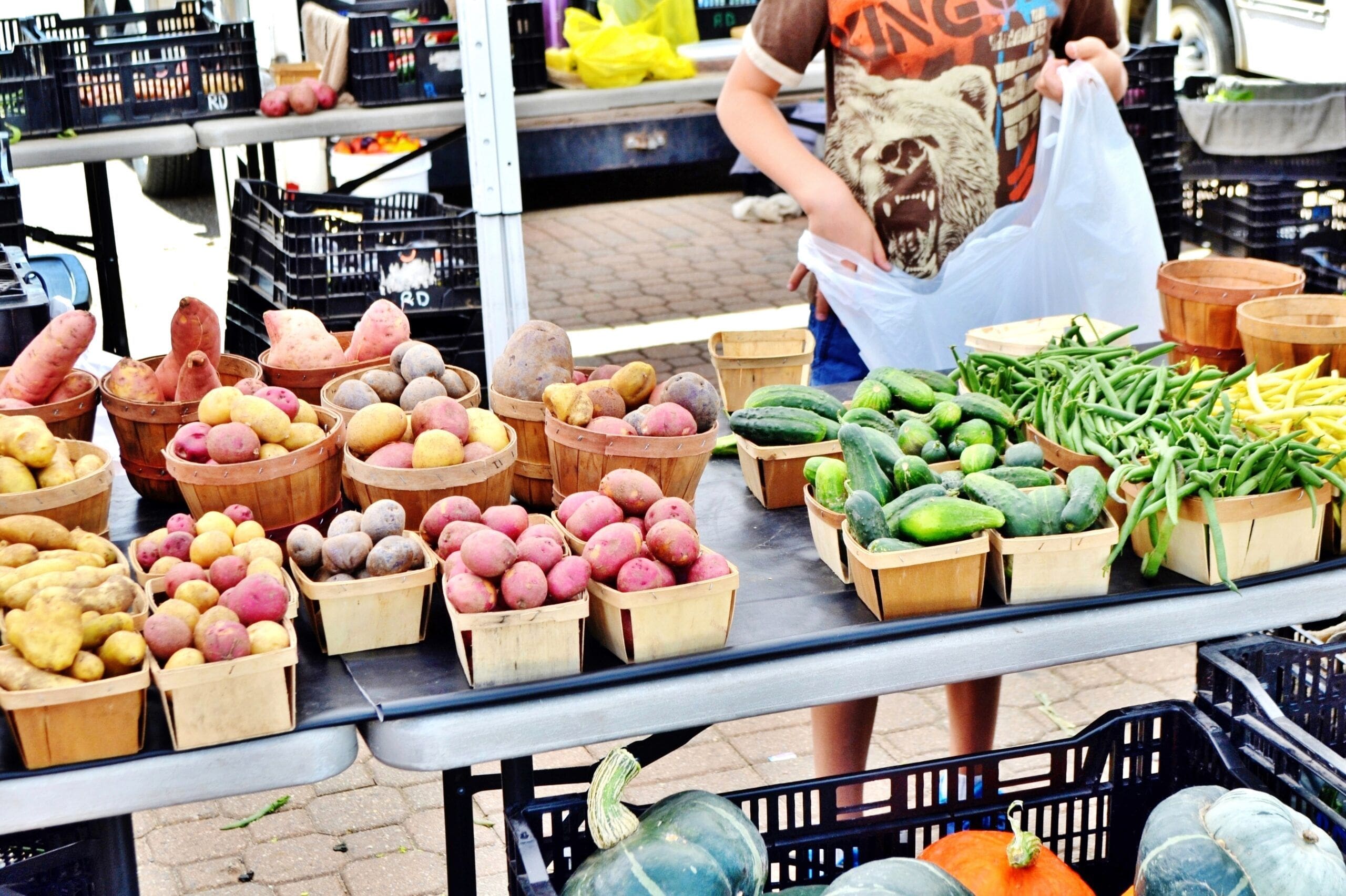By Brendan Kennedy.
See original post here.
A prescription for healthy food? Food rx program gives people access to fresh fruit and vegetables on doctor’s orders.
For years, Ted Blythe was told by his doctors he needed to eat healthier. Specifically, he needed to eat more fresh fruit and vegetables. He has a heart condition and neuropathy, and he has struggled at times with his mental health.
Blythe, 58, said he heard his doctors’ warnings, but given his limited income — $1,169 per month from the Ontario Disability Support Program — following their advice just wasn’t possible. “I couldn’t afford it.”
So when the pandemic hit and Blythe’s options narrowed even further; the food bank where he regularly picked up groceries had closed so he jumped at the opportunity to be part of a new program that gives people with low incomes and chronic health problems a “prescription” for healthy food.
Blythe is a participant in Food Rx, a pilot project launched by the University Health Network and non-profit FoodShare that provides more than 200 people a biweekly delivery of fresh fruit and vegetables.
“It’s awesome,” Blythe said. “I can actually make a healthy meal.”
The idea behind Food Rx is both novel and obvious: that giving people stable access to fresh and nutritious food will improve their physical and mental health. Similar programs have been run elsewhere, but the pilot is the first of its kind in Toronto.
“Prescribing food is not something I wanted to do as a health-care worker,” said Dr. Andrew Boozary, a physician and executive director of UHN’s Gattuso Centre for Social Medicine. “It’s a response to broken social systems.”
There were a record 1.45 million visits to food banks in Toronto last year, according to the latest Who’s Hungry report by the Daily Bread and North York Harvest food banks. (The total represents a 47-per-cent increase on the previous year; a typical year-over-year increase is between five and 10 per cent.) Last year was also the first-time new food bank users outnumbered those who had been before.
Food Rx was launched in the spring of 2020 as a direct response to increased food insecurity during the pandemic and concerns among community health workers that many vulnerable people were being disconnected from their usual social supports.
“We knew that the impact of COVID was not going to be an equalizer, but actually would disproportionately punish marginalized populations,” Boozary said.
Ample research shows that household food insecurity — that is, not having an adequate quality or quantity of food due to financial constraints — is associated with poor mental and physical health. Children who experience food insecurity are at a higher risk of hyperactivity and inattention, and increased risk of developing asthma, depression and suicidal ideation in adolescence, according to PROOF, a team of food insecurity researchers from multiple universities, including the University of Toronto.
PROOF’s research has also found that adults in food-insecure households are more vulnerable to diabetes, heart disease, hypertension, arthritis and back problems. As in children, the risk of depression, anxiety, mood disorders and suicidal thoughts increases with the severity of food insecurity.
One of the main goals of Food Rx, said Sané Dube, another member of UHN’s Social Medicine team, is to illustrate how health care should be about more than just what happens in a hospital or doctor’s office.
“What if we had a health-care system that met people where they were and responded to their needs?”
Preliminary data from the pilot suggests the biweekly deliveries are having their intended effect, with participants reporting significant improvements in their quality of life, overall happiness and sense of community connection.
Blythe, for one, says he has noticed he feels less stress since he started receiving his FoodShare boxes.
“Every month is still a struggle,” he said, “but when I go to sleep at night I know I’ve had a decent meal.”
The pilot was intended to run for two years, but with record inflation and skyrocketing food prices, organizers are hoping it can be extended. “We’re in a different place with the pandemic, but people haven’t stopped struggling,” Dube said.
Funding for the pilot has come primarily from the Arrell Family Foundation, but organizers are looking for additional funding to keep it running beyond the end of next month.
Critics of the program have pointed out that giving people a box of food every other week does nothing to address the root cause of their food insecurity.
“Why is this a box of food and not a bag of money,” said Valerie Tarasuk, PROOF’s leading researcher, in an article published in The Globe and Mail earlier this year.
Boozary and others agree.
“I’d prescribe a basic income today if I could,” he said, adding that he would never suggest giving people boxes of food could solve food insecurity or other problems linked to poverty.
“The same way that shelters are not the policy solution to homelessness … (But) what would you have us do as health workers in a situation when you know people cannot afford food, or they’re having to make choices between food and their prescriptions?”
Sheldomar Elliott, FoodShare’s Food Rx co-ordinator, said everyone involved with the program is well aware it’s a temporary solution.
“Food Rx is no doubt helping people get fresh food right now and reducing social isolation in the process, and that’s beautiful,” he said in an email. “But what FoodShare wants to see most is changes to policies around income so that people can afford the food they want and need for themselves.”




















